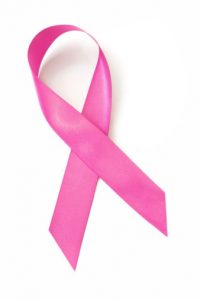Case Western Reserve University researchers have taken a dramatic step forward in the fight against cancer—all by starting at the very beginning.
Scientists led by School of Medicine Professor Mark W. Jackson set out to find a gene with the potential to turn healthy cells into cancerous ones. By following the biology of cancer formation, the team identified FAM83B as a so-called oncogene—that is, a gene that contributes to cancer development. The breakthrough marks only the second time in six years that researchers have identified an oncogene key to breast cancer growth. More importantly, the discovery provides key guidance in the development of cures.
“Using an unbiased screening approach, we let the biology of cancer formation tell us what genes are important and FAM83B was one of the genes that came out of our screen,” explained Jackson, assistant professor, Department of Pathology, Case Western Reserve University School of Medicine, Case Comprehensive Cancer Center. “When FAM83B was overproduced in normal breast cells, it transformed the normal cells, causing them to behave like breast cancer.”
Novel oncogenes provide opportunities for drug development that may expand the number of therapies available for eradicating cancer and extending the life of patients.
This study will appear in The Journal of Clinical Investigation and will be co-published with a discovery from the laboratory of Mina Bissell at Lawrence Berkley National Laboratories. Bissell’s laboratory discovered an oncogene called FAM83A. Both FAM83A and FAM83B belong to an eight-member family of genes that both laboratories propose may drive tumor formation and therapeutic resistance.
Jackson is the principal investigator leading a multidisciplinary team with investigators that include: Rocky Cipriano, James Graham, Kristy Miskimen, Benjamin Bryson, Ronald Bruntz, Sarah Scott, H. Alex Brown and George Stark.
Additional support for the research came from the Case Comprehensive Cancer Center, the National Institutes of Health, the Department of Defense Breast Cancer Research Program, the American Cancer Society and the McDonnell Foundation.
